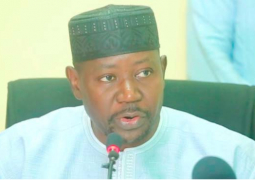First, the euro crisis that erupted in 2010 exposed the governance of the eurozone as flawed: In the absence of a fiscal and political union, government bond yield differentials within the euro area widened significantly, preventing Greece and other periphery nations from having access to international credit markets and forcing them in turn to accept a “rescue” deal with the EU and the IMF that carried ominous terms and conditions.
Five years later, most of the peripheral countries of the eurozone are still stuck in a recession and austerity has become the new principle for public policy in Europe.
Now, the so-called “migration crisis”, hundreds of thousands of people fleeing war-torn countries and risking their lives to reach Europe, has exposed the major flaws in EU governance on the whole: In the absence of a coherent European migration policy, different policies are being pursued by different member states all while the whole tragic affair has been pushed into the black market and the Mediterranean has become the grave of refugees.
Indeed, the crisis - just like the debt crisis before it - has brought to surface the uselessness of EU institutions but also the underlying racism in many European political cultures.
Conceived and functioning largely as a corporate entity, the EU has lagged behind other key areas besides trade and economics.
It has lagged behind in international diplomacy and shown little sensitivity to human rights.
Immigration, viewed mainly as a national security issue by most EU member states, is a policy area where the European Court of Justice, Commission, and Parliament have had very little say in it as European state actors have been allowed to adopt and enforce immigration rules and policies as they see fit.
As such, there is no “harmonised” EU immigration policy - and it is hard to see one developing in the near future as Europe shows little interest in moving in the direction of a federal state.
The immigration policies adopted by countries like Slovakia and Hungary clearly violate human rights and are driven by racist notions of national homogeneity; yet the current EU regime can do nothing about it.
Indeed, national resistance to a “harmonised” EU immigration policy is a direct result of the failure of the European integration process to move beyond mainly economic and trade policies for the benefit of the business environment of Europe.
At the same time, it needs to be pointed out that, because of globalisation, there has been a certain loss of state control over immigration, a development which complicates even further the whole issue of illegal vs legal immigration.
To be sure, the flow of illegal labour into European societies does depress local wages, thus enhancing in turn racism and xenophobia.
Hence, all of the above realities mandate that the EU takes a giant step forward by embracing the federal idea.
But let’s put into context today’s so-called “migration crisis”. The hundreds of thousands (if not millions) of people who are trying to find their way to Europe are fleeing from war-torn countries, courtesy of the policies of the US and its allies.
German weapons are being used extensively today in places like Libya and Syria, yet Germany feels no obligation to adopt a more relaxed attitude towards migrants from those countries.
Of course, this is not to suggest that the solution to migration is a Europe with open borders.
The solution to Europe’s refugee crisis necessitates the adoption of a “harmonised” EU migration policy that takes into account both the needs of refugees and those of member states.
A solution to Europe’s refugee crisis also requires an active foreign policy on the part of the EU which seeks to stabilise, rather than destabilise, the countries and the regions from which migrants flee.
Without these steps taken, Europe’s chaotic situation with refugees will continue for the indefinite future (environmental refugees may soon become the next migration wave), with fragmented implosion being most likely Europe’s own future.
Guest editorial
“Recognize yourself in he and she who are not like you and me”
Carlos Fuentes




